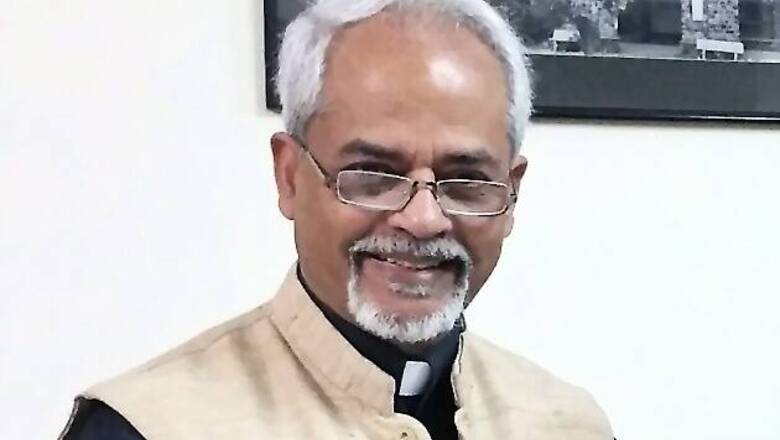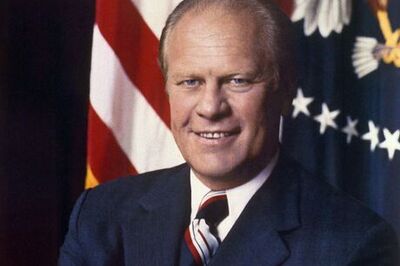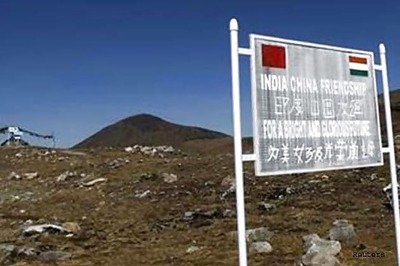
views
Introduction
Citizen is the building block of a society and democratic polity. The best investment we can make into creating a healthy and wholesome society is enriching citizens and refining public taste. Social decay happens by default. The antidote to this widely lamented state of affairs is the cultivation or propagation of higher interests and tastes. Education can be a remedial intervention is wholesome social engineering.
The journalistic fraternity holds exciting educational resources. Media is a sentinel of the health of our culture and society. The partnership between educational institutions and media fraternity is an exciting prospect that holds out immense benefit for the country.
For long we have talked about lifelong learning. The time has come to make a lived reality. Learning is not only for a livelihood. It is also for life. Such learning cannot end before life does. This initiative seeks to popularize lifelong learning.
We often think of money or budget when it comes to launching an initiative. A great deal can be done with existing resources. All educational institutions hold considerable intellectual assets, which are currently under-utilized. It is possible to link available resources to neglected needs, without money.
Educational institutions and media establishments share a sense of social responsibility. Neither can live as ends-in-themselves. The more an institution opens itself to its life-world and shares its resources with those who wish to benefit therefrom, the more dynamic it becomes. Let us call this outreach Institutional Social Responsibility or ISR (on the analogy of CSR). In CSR the focus is only on money. In ISR the focus is on human and intellectual resources, the scope of which is much greater than that of CSR.
Finally, every institution has a rich network of alumni who will be happy to share their resources with citizens under the umbrella of their alma mater. This is a win-win situation for the alumni and the institution.
The goals
(a) To promote the discipline of lifelong learning
(b) To enrich the cultural and intellectual life of the city
(c) To promote a sense of belonging together as learners and seekers towards becoming responsible citizens
The distinguished faculty teaching this course include:
- Justice Madan Lokur
- Justice Manmohan Sarin
- Mani Shankar Aiyer
- Dr SY Quraishi
- Mr Probir Sen
- Mr Deepak Mukarji
- Rohit Bansal
- Umesh Upadhyay
- Sanjeev Bikhchandani
- Seema Chisti
- Prof Aditya Bhattacharjea
- Rev Valson Thampu - Principal
- Dr Karen Gabriel
- Mr Sanjay Rao Ayde
- Dr Vikram Vyas
Arguably, it is impossible to put together a richer and more distinguished faculty than this!
Course outlines
The course will comprise weekly lectures from 4 -6 pm on all Saturdays in the Hall of St. Stephen's College. Network 18 will have exclusive electronic rights on the contents generated and the same will be given wide dissemination.
1. Individual, Family, Society - Valson Thampu
2. Juvenile crime - Justice ManmohanSarin
3. Probity in Governance -do-
4. Human Rights - Justice Madan Lokur
5. Gandhi-Character and souls strength - Valson Thampu
6. Delhi and You - Dr SY Quraishi
7. Corruption: Causes and Cure - Justice ManmohanSarin
8. Politics and Ideals - Valson Thampu
9. Good Governance - SR Ayde
10. Identity and Violence. - Valson Thampu
11. Media, Democracy and You. - Seema Chisti
12. The Dynamics of National Elections - Dr SY Quraishi
13. Law and the common man - Justice Lokur
14. Basic Principles of Economics - Aditya Bhattacharjea
15. The Spirit of Entrepreneurship - Sanjeev Bikhchandani
16. Science for Life - Vikram Vyas
17. God is a Mathematician -
18. Lifelong Learning - Valson Thampu
19. Personality Development - Valson Thampu
20. Religion- From Walls to Bridges - Dr AD Mathur
21. The Art of Creative Thinking - Valson Thampu
22. Politics and Freedom - - Sitaram Yechury
23. Responsible Citizenship - Umesh Upadhyay
24. Development and Justice - Justice Lokur
25. Towards a Culture of Peace - Deepak Mukarji
26. The Joys of Creativity - Ratna Vira
27. A Case for Diversity and Pluralism - Karen Gabriel
28. Understanding the Corporate World - Rohit Bansal
29. Values-based Education - Probir Sen
30. Engaging with Unequal India - Harsh Mandar
31. Panchayat Raj - Mani Shankar Aiyer
32. Indo-Pak Relations -do-
The Course is envisaged to be not only intellectually stimulating but also socially enriching. There will be periodic opportunities, therefore, to interact informally and share views and concerns as well. There will also opportunities for the candidates to participate in teaching and mentoring.
It is also envisaged to accredit the candidates who show keen motivation, leadership skills and commitment to the basic vision of the programme as "Extension Faculty". Those thus accredited will be allowed to form, under the authority of this programme, to enroll up to 20 learners under them and to transmit to them whatever is learned through the course. This will be done within 3 months of the commencement of the course. It is emphasized that not everyone who enrolls will be thus accredited. There will be a screening and selection process, overseen by a small team of the faculty of which the Principal will be convener.
Classes will be suspended for a month and a half (1 June to 15 July).
There will be a simple assessment process, the exact nature of which will be announced later, in early February and the results of the assessment will be reflected in the Course Certificate issued, which will be done at a convocation in the last week of February 2016.
(Dr Valson Thampu is Principal and Coordinator of the Course)



















Comments
0 comment